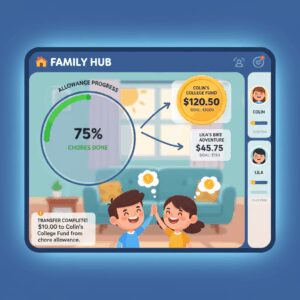Securing Your Legacy: A Comprehensive Guide to Life Insurance for Seniors

As we age, we recall happy memories including some that are not so happy. Hopefully you will look back on your time with the people in your life with joy, even though life will sometimes throw you off your game. Therefore, one must be prepared. The brutal truth is that we will all pass on and leave our loved ones behind. Most people would want this event to be easily maneuvered while in the midst of planning final arrangements for you.
This is where life insurance comes in. Did you know that there are three different types of life insurance policies you can purchase? There’s Whole, Term and Universal.
Let’s define them each, discover the pros and cons of each, then review life insurance companies recommended for seniors.
What is Whole Life Insurance and How Many Types Are There?
Whole Life Insurance is one where lifetime coverage with a cash value increases at a rate decided upon by your insurance company. When an insured passes, a death benefit is issued.
Some insurance plans offer investment options, payment options, or are created for a specific reason. Some options are: Joint Life Insurance, Single Premium Whole Life Insurance, Variable Whole Life and Reduced Paid Up Whole Life Insurance. When purchasing a plan, discuss your needs in detail with your agent.
One can also choose either “Participating” or “Non-Participating” Whole Life Insurance. Both of these will pay out benefits at the appropriate time but only a Participating Whole Life Insurance Plan will pay dividends to the policy when the insurance company has a profitable year.
Pros and Cons of Whole Life Insurance
Pros:
- A payout is guaranteed easing the burden associated with the costs of funeral arrangements.
- An insured has the option of cashing out a participating policy by surrendering it. Once surrendered, the value of the policy minus any fees will be remitted to the policy holder.
Cons:
- In general, the premium you pay for whole life insurance will be higher than for a term life insurance policy because insurance and administrative fees will be taken out of any returns.
What is Term Life Insurance and How Many Types Are There?
Term Life Insurance is a contract one enters into for a specific amount of time, usually between ten and thirty years and for a set monthly premium. Some companies offer policies for thirty-five to forty years.
If the insured passes away during the term of the policy, a death benefit will be paid. If the insured passes away after the end of the term and before renewing their policy, there will be no death benefit.
The most common form of this type of insurance is “Level Term” or “Level Premium” and has a permanent monthly premium payment requirement.
You can also choose a “Yearly Renewable Term Life Insurance” policy, whose length is just one year and can be renewed annually. “Decreasing Term” policies can be purchased, however the value of the policy decreases based on a schedule.
Pros and Cons of Term Life Insurance
Pros:
- Pros are specific to varying family dynamics. For elders, this type of policy may pay a death benefit to an older spouse still living if named as a beneficiary.
Con:
- Premiums are higher for elderly insurance buyers and if the insured passes away after the end of the term of their policy, payouts to beneficiaries will not be made.
What is Universal Life Insurance and How Many Types Are There?
Different types of Universal Life Insurance policies allow the holder to borrow against the policy or cash in the savings portion, which grows and is tax-deferred during the lifetime of the insured. Flexibility with regard to the payment of premiums is given as is a death benefit.
There are three types of Universal Life Insurance: “Indexed Universal Life Insurance” is permanent, lasting throughout your life and whose cash value grows. “Variable Universal Life Insurance,” in addition to traditional benefits, uses sub-accounts to invest the cash value of your policy, and finally, a “Guaranteed Universal Life Insurance” policy will pay a guaranteed death benefit as long as your premium is paid monthly.
Pros and Cons of Universal Life Insurance
Pros:
- A Universal Life Insurance policy will provide a death benefit for your family and help them with finances if the insured dies while the policy is active.
- Cash value will grow over time.
Con:
- Only some universal life insurance policies will guarantee cash value growth.
- There are limits to returns.
- If you borrow against your policy, any cash withdrawn will diminish its cash value and might lapse unless you make extra premium payments.
Why should seniors purchase life insurance?
Pros:
- If your home is mortgaged, a senior person’s life insurance policy can help loved ones cover outstanding debt.
- Such a policy can cover living expenses for a loved one after the insured has passed away and offers financial protection.
- It creates an inheritance apart from the assets of your estate, which can help your beneficiary pay any inheritance taxes or, if you have a business, it will help them purchase it.
- You don’t need to purchase a large policy; even a small one can help survivors.
- You won’t need a physical exam with many policies.
Cons:
- Lower premium policies may not offer enough coverage.
- Skipping a physical exam will cost more in monthly premiums.
- If you have a serious health issue, you may not be able to obtain insurance and if you do, premiums will be high.
Life Insurance Plans for the Elderly
Some insurance policies may be tailored for the elderly with low monthly premiums and no medical examination. Some are better suited for some people while others are not. Let’s examine a few, including their pros and cons but, monthly premiums will not be discussed as they are specific to the plan you purchase.
Pros:
- The maximum age for whole life coverage is 89.
- Policies can be purchased online.
- Flexible accelerated death benefits can be made available.
- No medical exam is required.
Cons:
- The maximum death benefit is $25,000.
- If you’re over 75 years old, there are certain policies you must purchase.
Pros:
- Most plans are easy to apply for over the phone.
- There is a range of options.
- No medical exam is required.
- Coverage options are for 10, 15 or twenty years for term life insurance.
Cons:
- If you would like to convert from a term life insurance policy to a permanent one, that option is not available. Only renewal at the end of the term of the policy is allowed.
Pros:
- You will be accepted for Term Life, Whole Life insurance policies, guaranteed.
- No medical exam.
- Maximum age is 80 years old.
Cons:
- AARP membership is required.
- For Term Life Insured, you will see an increase in Premiums every five years.
Pros:
- There are two kinds of term life insurance policies to choose from: Express Term and Traditional Term Life.
- You can obtain a quote online.
- Coverage between $25,000 and $500,000 can be purchased online.
- A medical examination is not necessary.
- AAA membership not required.
Cons:
- Not offered in New York.
- Traditional Term Life policies can only be purchased through an agent.
- Riders will differ depending on the policy.
These are just a few options. Take your time while deciding. Be sure to ask lots of questions!
Good luck!
Unlock Full Article
Watch a quick video to get instant access.








